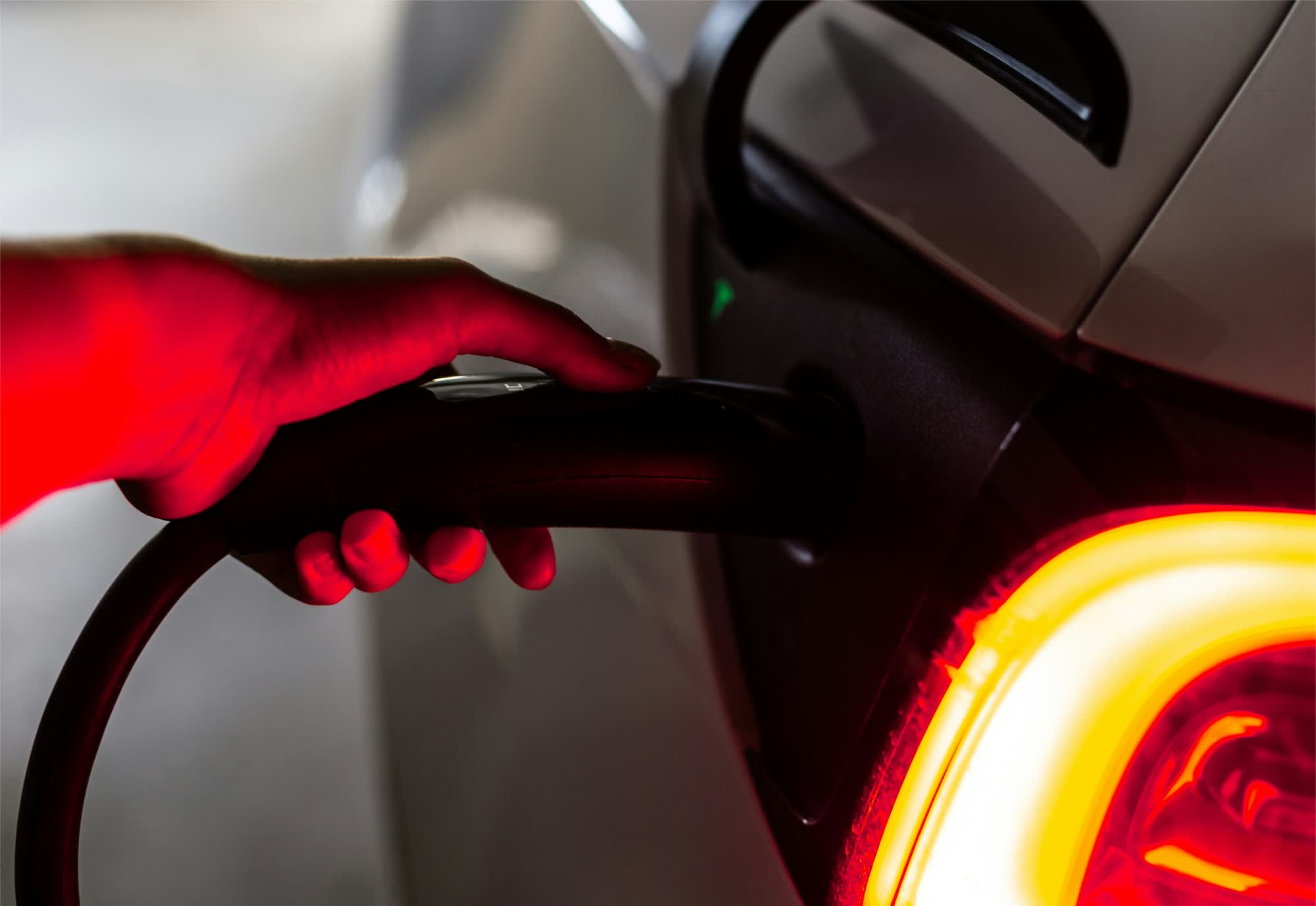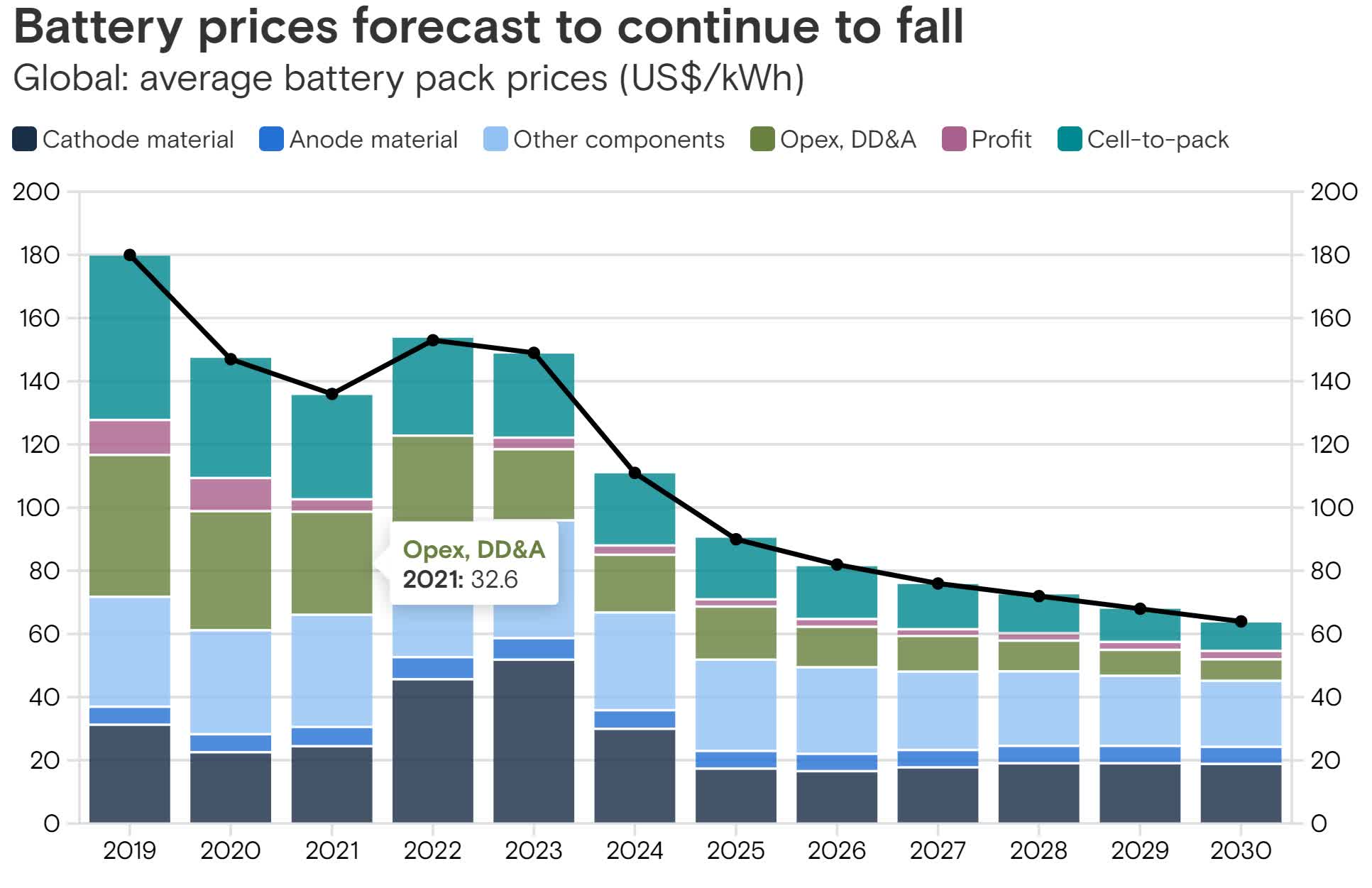Green if true: Advances in technology and reductions in the cost of battery metals will soon bring electric vehicles to price parity with traditional cars, according to Goldman Sachs. However, this forecast overlooks current issues with oversupply, environmental impact, and China's export restrictions on rare-earth elements.

Goldman Sachs is highly optimistic about the future of electric vehicle batteries. The financial giant recently released new research focused on EV batteries, predicting that battery prices will drop by nearly 50 percent within the next few years. The technology is advancing much faster than initially anticipated.
The EV market is currently experiencing a phase of apparent oversupply, which might seem like bad news for battery tech. However, Goldman Sachs Research is forecasting a resurgence in consumer demand that will "largely begin" by 2026.
Global average prices for EV batteries have already seen a decline, falling from $153 per kilowatt-hour (kWh) in 2020 to $149 in 2023. This year, prices are expected to drop further to $111 per kWh, and by 2026, they are projected to reach just $80. In two years, EV batteries will cost nearly 50 percent less than they did in 2023, bringing electric vehicles to ownership cost parity with gasoline-powered vehicles in the US – and that's before factoring in subsidies.

Nikhil Bhandari, co-head of Goldman Sachs' Asia-Pacific Natural Resources and Clean Energy Research arm, said two key factors are driving the rapid decline in EV battery costs.
First, technological innovation is significantly increasing energy density. Many products now feature up to 30 percent higher energy density at a lower cost, with several of these innovations already available on the market.
The second major factor is the "continued downturn in battery metal prices," Bhandari noted. Critical elements like lithium and cobalt, which account for around 60 percent of the cost of EV batteries, have experienced price reductions. Between 2020 and 2023, the industry faced substantial "green inflation," with prices rising across the board for many materials.
According to Bhandari, 40 percent of the cost reduction is attributed to lower commodity prices. However, he did not elaborate on how geopolitical tensions between the US and China could significantly disrupt market progress. China controls some of the world's largest deposits of rare earth elements and is now using its dominant position to push back against export restrictions imposed by US authorities.
Goldman Sachs' research also highlighted that lithium-based batteries will likely continue to dominate the market, despite emerging alternatives like solid-state batteries offering potentially revolutionary improvements to the EV landscape. Five companies currently control 80 percent of the EV battery market, and their substantial R&D investments will likely maintain high barriers to entry for potential competitors.
Permalink to story:
EV battery prices set to plummet, dramatic 50% drop predicted by 2026

